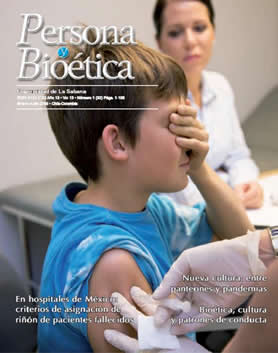SCOPE AND LIMITS OF NEUROTHEOLOGY IN THE THINKING OF ALDOUS HUXLEY. INTERDISCIPLINARITY PUT TO THE TEST IN THE EXISTENTIAL STUDY
Keywords:
Neurotheology, neuroethics, neuroscience, anthropology of religion, mystic experience, cosmetic psychopharmacology, practical operationalism, Aldous Huxley.Abstract
The area of “neurotheology” is outlined in this article. In doing so, the author identifies its methodological limits, proposes a thematic classification and analyzes its present scope. Using the scheme proposed initially by Aldous Huxley, three groups of possible objectives are identified: those focused on “practical operationalism”, “transcendental operationlism” and “mystic operationalism”. Examples of ongoing research into each of these groups of possible objectives are provided, with some discussion of the new debates they have sparked. The renewed interest in religion on the part of experimental science is underscored and a better framework for reflecting on the place and weight of such studies in neuroethics is provided, together with a look at the particular obstacles that accompany interdisciplinary projects of this type.
Downloads
How to Cite
Issue
Section
License
Authors who publish with this journal agree to the following terms:
This journal and its papers are published with the Creative Commons License Attribution-NonCommercial-NoDerivatives 4.0 International (CC BY-NC-ND 4.0). You are free to share copy and redistribute the material in any medium or format if you: give appropriate credit, provide a link to the license, and indicate if changes were made; don’t use our material for commercial purposes; don’t remix, transform, or build upon the material.





